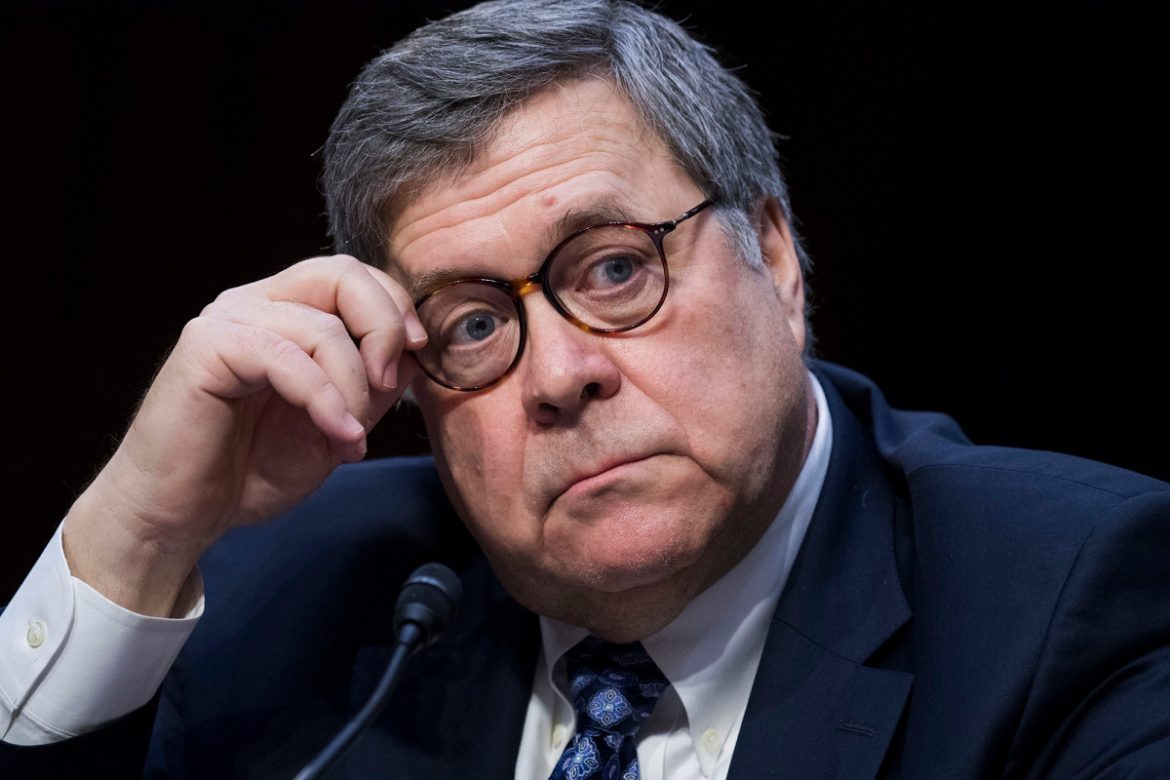When shilling for a certain political party, all ethical journalistic practices are thrown out the window…
“I’m amused,” Attorney General William Barr told CBS News’ Jan Crawford, “by these people who make a living disclosing classified information, including the names of intelligence operatives, wringing their hands about whether I’m going to be responsible in protecting intelligence sources and methods.”
He went on after further questions, “Well, the media reaction is strange. Normally the media would be interested in letting the sunshine in and finding out what the truth is. And usually the media doesn’t care that much about protecting intelligence sources and methods. But I do and I will.”
William Barr is asking questions the media don’t want asked
“I’m amused,” Attorney General William Barr told CBS News’ Jan Crawford, “by these people who make a living disclosing classified information, including the names of intelligence operatives, wringing their hands about whether I’m going to be responsible in protecting intelligence sources and methods.”
He went on after further questions, “Well, the media reaction is strange. Normally the media would be interested in letting the sunshine in and finding out what the truth is. And usually the media doesn’t care that much about protecting intelligence sources and methods. But I do and I will.”
You don’t have to have been “in the business” for Barr’s nearly 50 years to understand what he means. Just flash back 13 years to June 2006 and read the New York Times’ revelations about the Swift bank procedures.
The Belgian-based Swift manages foreign currency transfers, and after 9/11, the CIA and Treasury conducted data searches to spot and ultimately stop terrorist financing. The Times’ story conceded that this program was successful in obstructing terrorist activity and it identified no abuses.
Top administration officials pleaded with the Times not to publish the story, and President George W. Bush said publication was “disgraceful.” Times editor Bill Keller’s justification: “the administration’s” — not the government’s, but the administration’s — “extraordinary access to this vast repository of international financial data … is a matter of public interest.”
In other words, the Times didn’t care much about weakening America’s fight against terrorism by disclosing classified information and revealing intelligence sources and methods. It was more interested in letting the sunshine in on a program which, to the best of its knowledge, had infringed no one’s rights.
Some called for prosecution of the Times for violating the Espionage Act of 1917, which criminalized the publication of classified information and was signed by President Woodrow Wilson two months after the U.S. entered World War I. But as Sen. Daniel Patrick Moynihan pointed out in his 1998 book Secrecy: The American Experience, the Espionage Act is over-broad and the government tends to over-classify information, including even newspaper articles.
Accordingly, successive administrations, up to and including George W. Bush’s, have declined to prosecute news media for publishing stories, including leaks of classified information, that seem clearly forbidden by the words of Woodrow Wilson’s Espionage Act.

